Written by Verity Coker
Rotorua Canopy Tours is a native forest zipline experience with a difference. Every customer who goes on a Canopy Tour helps to restore the native forest that has been damaged by humans and introduced pests, it truly is tourism with a difference! A portion of every tour purchased is donated to their conservation efforts. With these funds, the team have been able to restore a large section of the Dansey Road Scenic Reserve by trapping for invasive pests, such as rats and possums that prey on native species including birds and insects, the pests also graze on the native forest itself.

Spencer showing Trenz delegates how to set a possum trap.
For the past six years, Canopy Tours have been trapping in the Dansey Road Scenic Reserve. They have trapped over 250 hectares of forest and have seen amazing results. Hundreds of pests have been removed from this area and native bird numbers have risen, the North Island Robin can even be seen eating out of visitor’s hands on tour.
On my first day at Canopy Tours, I was lucky enough to join the team on a new part of the conservation project. An additional 50 hectares at the Mamaku end of the Dansey Road Scenic Reserve was being trapped. This section had never been trapped before. This section of trapping was a little different than what we had done in the past, this time we invited some international delegates who were in Rotorua attending the TRENZ tourism and travel trade event to come and help us trap this section of forest.
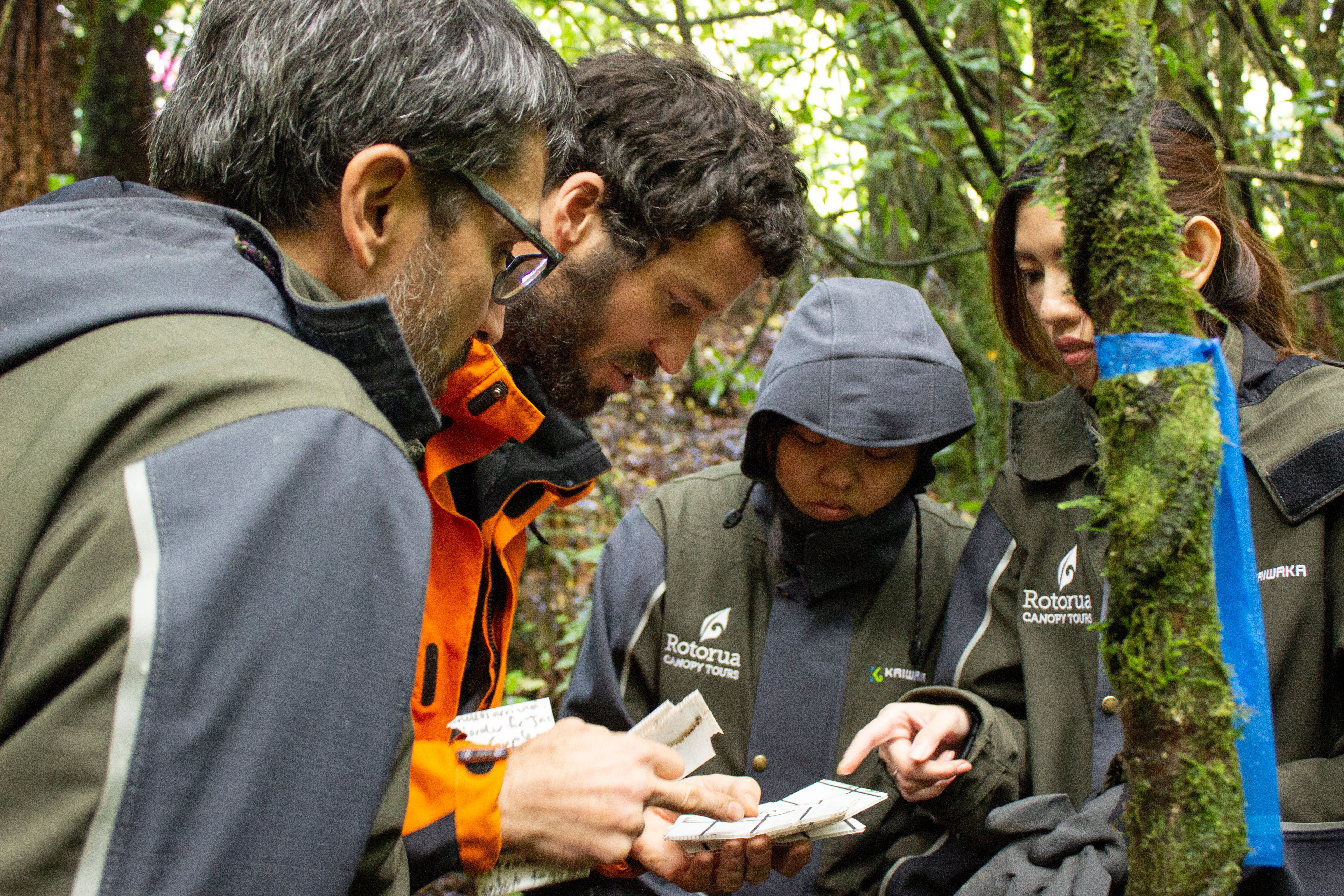
Andre and Trenz delegates checking out chew cards.
Scott Davis, Rotorua Canopy Tours amazing conservation lead and senior guide, designed and organised the trapping lines for this new section of forest. Scott has been with Canopy Tours for 4 years and is an expert in all thing’s conservation. Scott has been heavily involved in the trapping of 250 hectares of the forest and has assisted in clearing trapping lines. At home in the forest, he was the perfect person to show us around. I asked Scott why he was so passionate about protecting our native forest.
“If we don't protect it, our native bird numbers will continue to drop rapidly. Department of Conservation can't do it alone, so it is people like us who need to help. I'm passionate about reaching the end goal of being predator free by 2050. Our actions can have such a huge impact and that's why I'm out here today!”
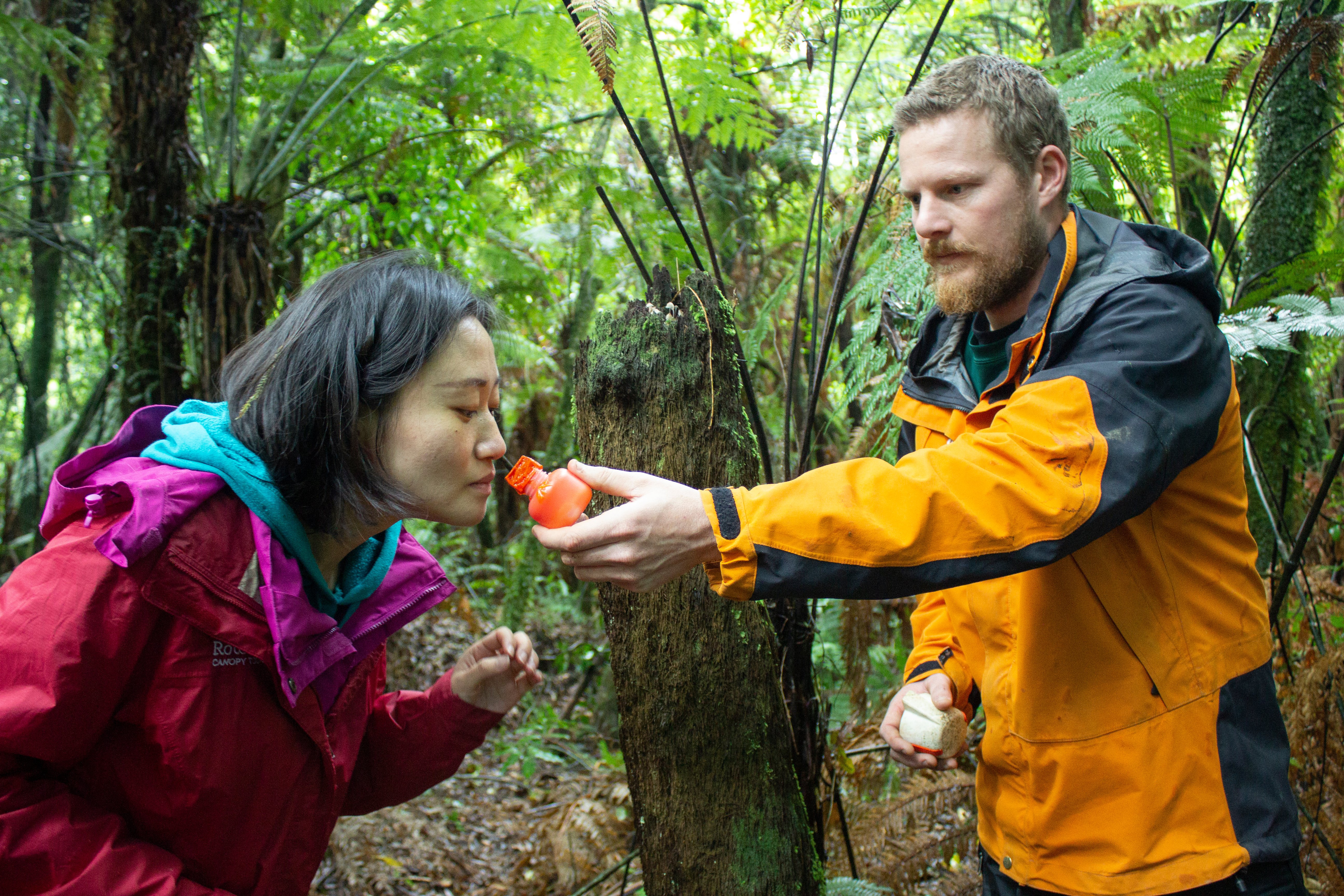
Scott and Trenz delegate smelling bait for Good Nature Trap.
Scott explained to me that the key predators in our forest are possums, rat and stoats. These species cause the most damage to our forest and wildlife. Every night 70,000 birds are killed by these pests, this amounts to 26 million every single year. Without intervention, these numbers will continue to grow, and the forest will be overrun with pests. Trapping is essential to the restoration of the forest.
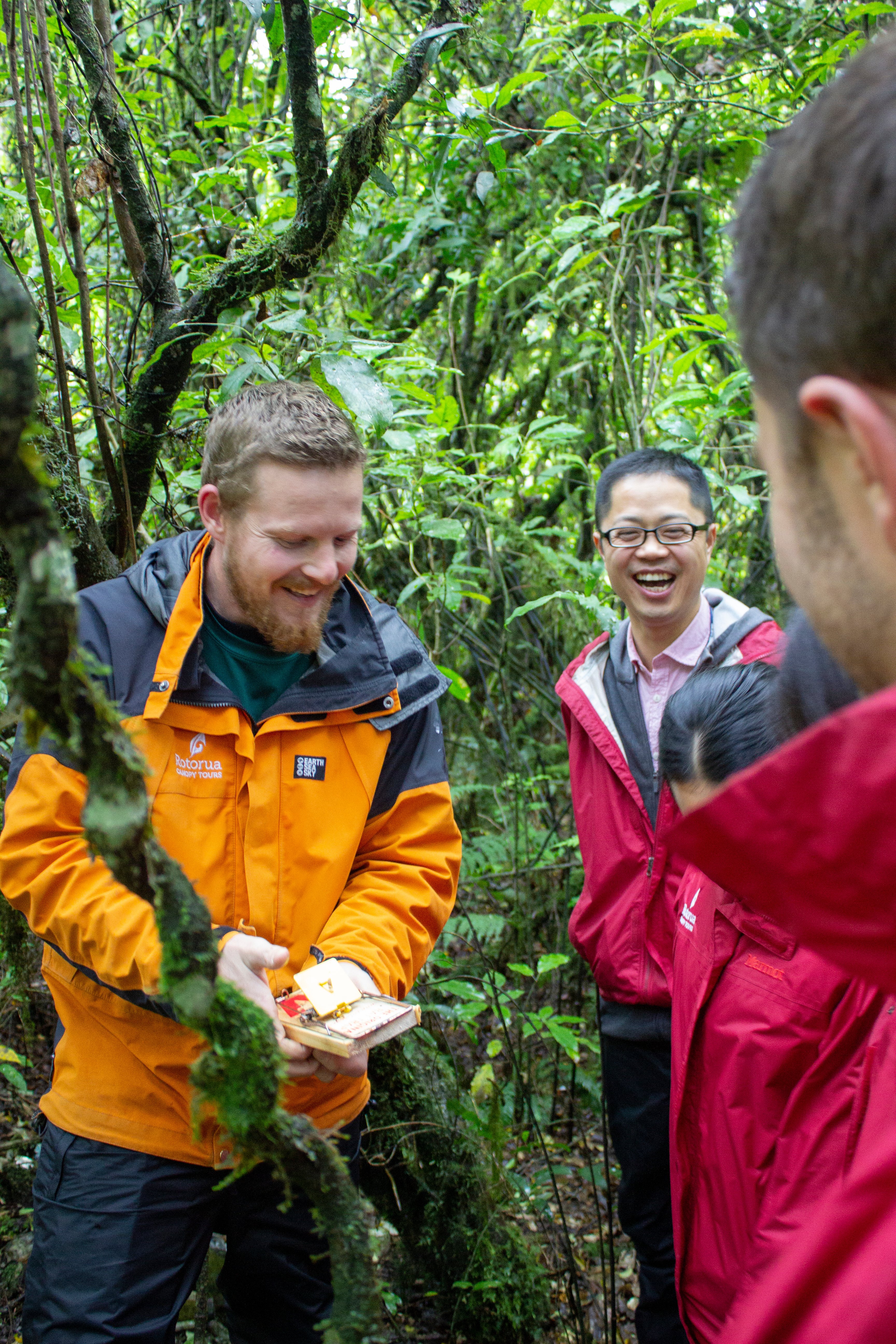
Scott showing how to set a Victor rat trap..
Several different traps were used to kill the pests. To trap rats, we used Victor traps. These are manual and are baited with peanut butter. For Stoats we used Doc 200s. Also, a manual trap, we use a Ping pong ball to lure in the pests, as they resemble a bird’s egg, which all the pests in our forest like to eat. Sentinel manual traps were used to trap possums. The delegates got to see first-hand how pest control is carried out and set the traps themselves. We finished setting the traps early afternoon and left them over night, as this is when the pests are the most active.
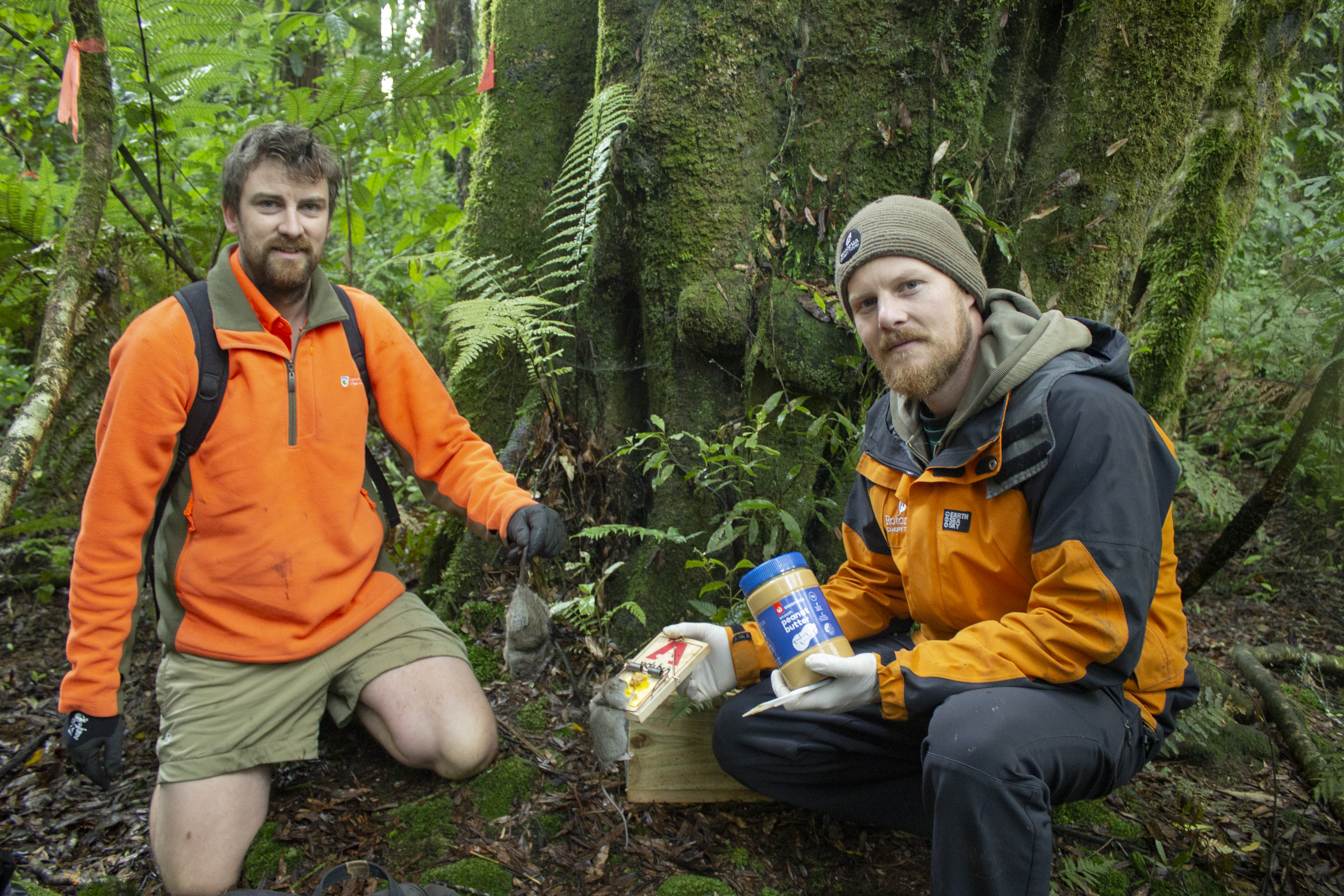
Scott (Canopy Tours) and Karl (Department of Conservation) re-baiting rat traps.
The following morning, Scott, myself and Karl from the Department of Conservation head back into the forest to see what we had caught. I was excited to see how successful we had been. We had an amazing result. Over 140 pests were caught, including rats, possums and mice. This was exactly what we were hoping for.
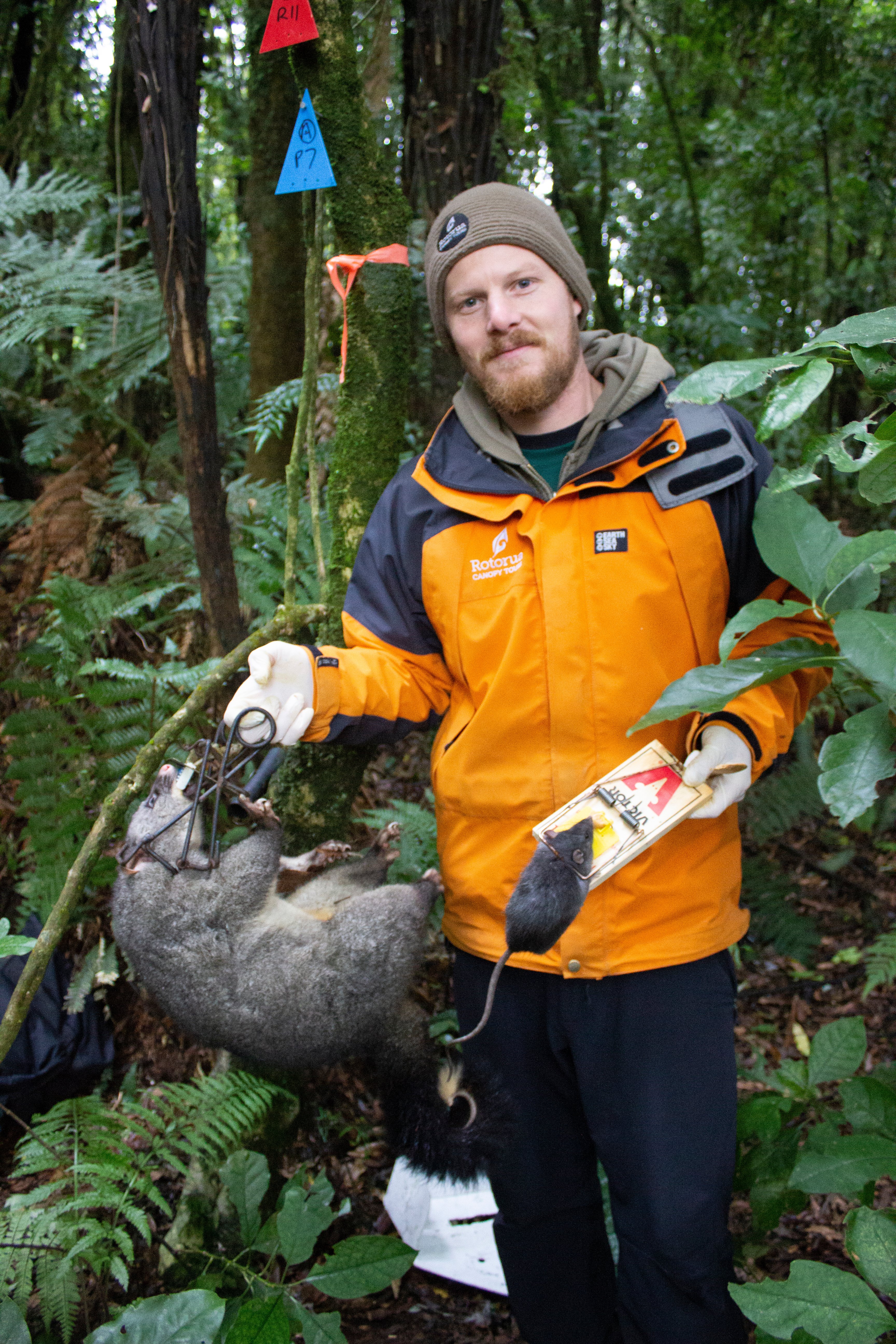
Scott with possum and rat caught in traps.
Across the rest of the week, we continued to set and clear the traps. The amazing results continued with heaps of pests being trapped each night. Canopy Tours will continue trapping in this new section of forest to ensure it becomes a safe place for our native birds to live and breed. The bird song will soon be heard throughout the entire forest.



